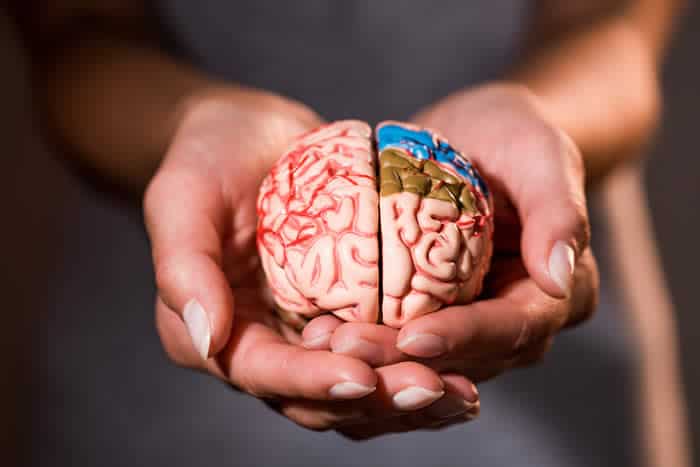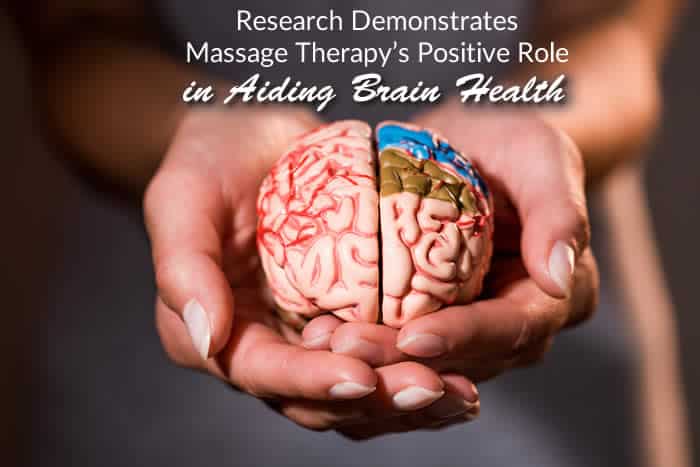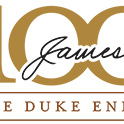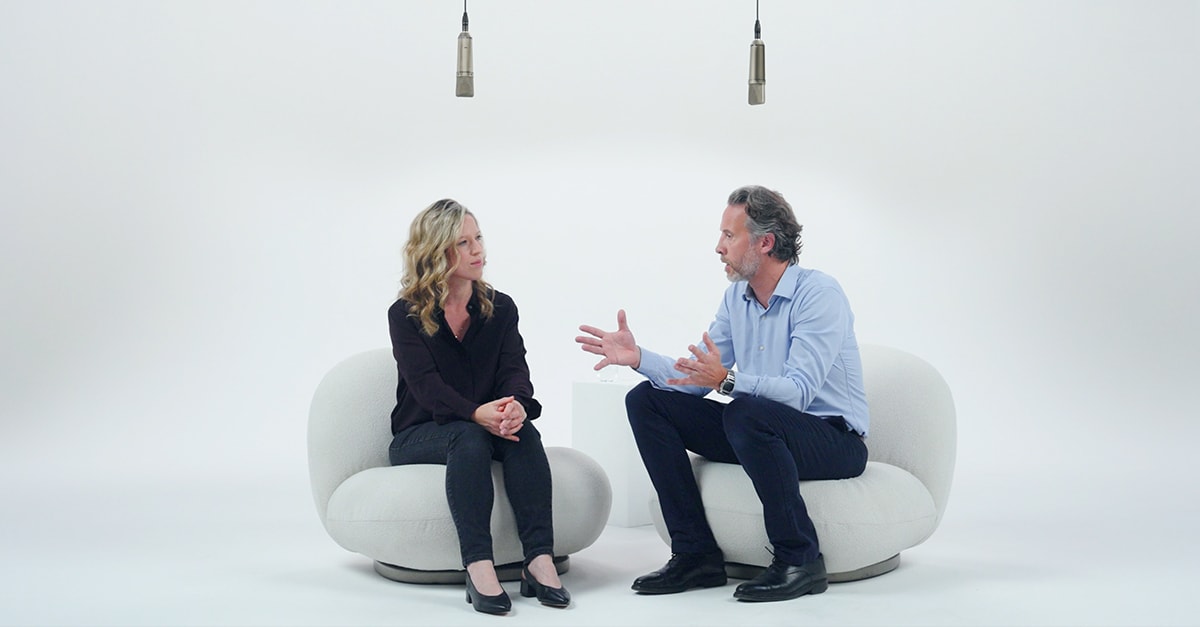Massage’s Role in Brain Health

From studies published in Complementary Therapies in Clinical Practice, the International Journal of Therapeutic Massage and Bodywork, among others, research undeniably demonstrates massage therapy’s positive role in aiding brain health. Learn how massage therapy is instrumental for patients with Multiple Sclerosis, Parkinson’s, the elderly, and more.

There is much research confirming the positive effects of massage therapy with aiding neurological health. Mental health has become more openly discussed in mainstream and social media outlets in recent years. The covid years brought to light many shortcomings in this arena of medicine with many people shifting life priorities towards attaining better balance in life towards goals geared towards improving mental health. This article will explore the available research on how massage therapy aids brain health.
Degenerative Brain Diseases
One major aspect of mental conditions that can be alleviated is the prevention and progression of degenerative brain diseases. These conditions, such as Alzheimer’s and Parkinson diseases, witness a rapid loss of neuronal tissue within the central nervous system (more than expected due to normal aging processes). A primary goal of aiding patients with such conditions is to slow the progressive loss rate to lessen symptoms experienced.
Cognitive Function
In Complementary Therapies in Clinical Practice, researcher Jeong-Hwan Lim concludes positive results with the usage of mechanical massage within a mechanized chair coupled with binaural beats (two different frequency sounds played in each ear through headphones) has a positive impact on cognitive function and reducing mental fatigue.
Participants received massage in the mechanical chair while listening to the binaural beats. Measures of EEG (Electroencephalogram) readings and results of five cognitive tests were examined. (1)
Multiple Sclerosis
The Journal of Bodywork and Movement Therapies published research indicating how Multiple Sclerosis (MS) patients benefited from massage therapy. Twenty-four adults with MS were assigned to either a standard medical treatment group or a massage therapy group.
The group receiving massage therapy witnessed:
- lower anxiety
- less depression
- enhanced social functional status
- and improvements in disease progression as viewed on imaging. (2)
Balance and Stability
The International Journal of Therapeutic Massage and Bodywork published research showing short-term improvements in balance, neurological, and cardiovascular measures with the usage of massage therapy. Participants were elderly individuals.
The study concluded that a single 60-minute massage therapy session was shown to have stabilizing effects on measures of static and dynamic balance and physiological factors related to stability in older adults. This may lead to improved balance, thereby decreasing the risk of falls in elderly individuals. (3)
Massage Therapy & Healthy Activities
The Handbook of Wellness Medicine has an entire chapter on how healthy activities, lifestyle practices and manual therapies aids neurological health. Authors Kevin Ding and Isaac Yang discuss how massage for neurologically-challenged patients should be carried out in a quiet room on a comfortable table; also that Multiple Sclerosis and migraine patient headaches received relief from their symptoms with massage therapy.
Combining massage therapy with other holistic and healthy activities can yield positive results and reduction of cognitive challenges associated with neurological diseases and conditions. (4)
Parkinson’s Patients
The Journal of Alternative and Complementary Medicine published a case-series study in 2012 highlighting Japanese massage therapy, commonly referred to as Shiatsu, aids Parkinson’s patients with their symptoms.
The three main results shown in the study were:
- patients with challenges walking witnessed improved gait speed
- patients with frozen shoulder displayed greater shoulder range of motion
- and improved VAS (visual analogue scale) scores regarding patient pain.
Shiatsu massage was shown to be an effective treatment for Parkinson’s patients. (5)
The same journal published similar findings in 2018 indicating that “Acupoint massage,” massage that involves stimulating traditional Chinese meridian points, is an effective intervention for maintaining cognitive health in elderly adults.
Improvements were witnessed with measures of the Wechsler Memory Scale, Visual reproduction, Logical memory and Associative Learning markers. (6)
Massage Therapy’s Vital Role in Sleep Quality and Brain Health
Sleep is vital for brain health and cognitive function. This can be improved with massage therapy.

A study conducted with infants showed improved sleep quality with coupled improved motor development in infants aged 3-4 months. The infants studied were identified as having traumatic brain injuries. Measures of results were gathered from the BISQ (Brain Injury Screening Questionnaire) that parents filled out after the massage sessions. Both gross and fine motor skills improved for these infants, indicating healthier neurological development. (7)
Educating the Public
I encourage massage therapists to further educate the general public in this concept. There are many means for a therapist to inform the general public on the virtues of massage therapy for neurological health. Presenting discussions within your public recreation centers can be easy and inexpensive. A therapist only needs one to two hours to present and show a brief demonstration on massage methods.
Creating blogs and vlogs on the topic and printing out articles are also great ideas to employ to educate the general public.
- Blogs sharing written accounts and client testimonials will make great reading.
- Vlogs which provide video accounts and spoken explanation can become powerful education tools.
- Having articles printed ready for clients to read in your treatment facility lobby will be useful educational tools. Good sources for these articles can be Google Scholar or Pubmed.gov.
Conclusion
The growing body of evidence indicating how massage therapy aids neurological health is overwhelmingly positive. As more members of the public begin to understand massage’s role in their overall health, more credibility will be garnered towards our work.
The ultimate goal will be to see a reduction in degenerative brain conditions and slowing the progression of mental health cases in our nation.
link







